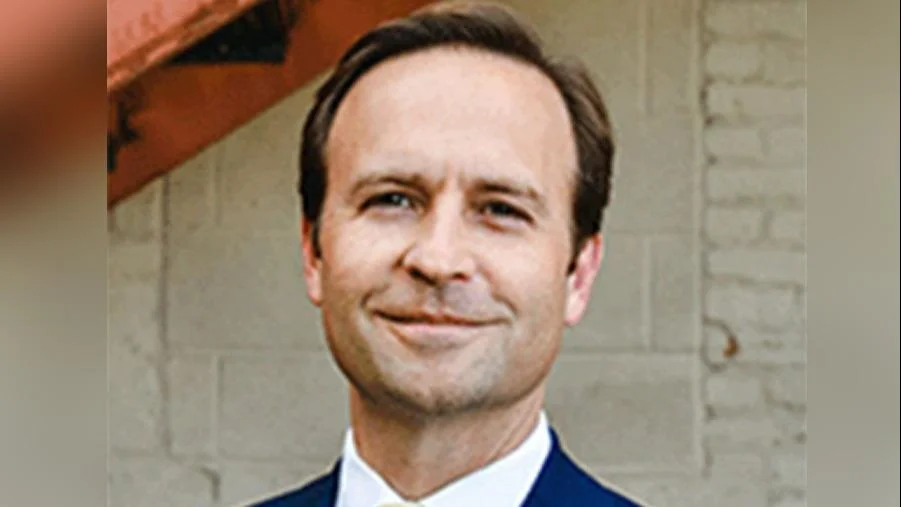Brian Calley President and Chief Executive Officer at Small Business Association of Michigan | Official website
Brian Calley President and Chief Executive Officer at Small Business Association of Michigan | Official website
Michigan entered the new fiscal year on October 1, 2025, without a finalized state budget. Despite the absence of a budget, Governor Gretchen Whitmer assured residents that state government operations would continue as normal. In her statement, she wrote, “state government operations will continue providing services to Michiganders.”
Late Tuesday night, Whitmer issued an order to Budget Director Jen Flood authorizing the release of payments necessary to maintain essential government functions. The governor stated, “As governor, my constitutional duty is to protect the health and welfare of Michiganders. The legislature has not fulfilled its constitutional obligation to pass a budget by the end of fiscal year 2024-2025.
“It is critical to maintain continuity of government operations and services to support public health and welfare. Until a fiscal year 2025-2026 budget is enacted, I hereby authorize you to take the necessary steps to release payments to support those continuing government operations.”
Historically, Michigan officials have held that spending money without an approved budget is not authorized under state law. A memo from former House Fiscal Agency Director Mitch Bean in 2007 noted that without some form of budget in place by October 1, “the administration has no legal authority to fund essential services.” He added that making critical payments requires appropriations when the Legislature adjourns.
On Tuesday, neither the House nor Senate took action on any bills before midnight. The Senate did bring forward a continuation budget (HB 4161), with plans for votes on Wednesday. Legislative leaders are also expected to address a wholesale marijuana tax as part of a proposed $1.85 billion road funding package.
Peter Spadafore, executive director of the Michigan Alliance for Student Opportunity, commented on the situation: “You can’t will a budget into existence with press releases. Believe me, we tried.”
Senator Stephanie Chang (D-Detroit) plans to propose amendments related to taxes on marijuana and vapor products during upcoming legislative sessions. While her amendment linking marijuana taxes with higher vape taxes may not pass, another measure could lower the marijuana wholesale tax from 24 percent to 20 percent.
The Democratic-controlled Senate is expected to consider HB 4951—which passed in the House—to impose a wholesale tax on marijuana sales for road funding purposes. Under SB 582 and potential amendments prepared Tuesday evening, taxes on certain nicotine products could rise over time from an initial rate of 32 percent up to 57 percent.
According to information obtained by MIRS News, funds raised from these taxes may be used both for nicotine addiction prevention efforts and possibly redirected toward road projects.
In a joint statement after 5:15 p.m., Whitmer, Senate Majority Leader Winnie Brinks (D-Grand Rapids), and Speaker Matt Hall (R-Richland Township) said their bipartisan budget aims include fixing roads at various levels of government; reducing taxes for working families; protecting Medicaid and hospitals; increasing education funding—including free school meals; investing in public safety; and modernizing Selfridge Air Force Base. No specific figures were provided in their announcement.
Both legislative chambers plan further action this week on implementation bills related to the agreement and have adopted increased transparency measures regarding earmarks.
Whitmer told state employees they would remain at work while lawmakers finalize the budget: “Tomorrow, state government will continue and work will go on in the Legislature to finalize a balanced, bipartisan state budget this week,” she wrote. “Meanwhile, state government will continue providing uninterrupted services and all state employees will work tomorrow… We’re almost there. Let’s get it done.”
Earlier communications from Whitmer reassured employees their jobs were secure due to an agreement between legislative leaders: “Even as the federal government hurtles towards a shutdown, the state government will stay open and operational. Thank you for your continued service to the people of Michigan,” read one letter.
Attorney Steve Liedel observed that while calling it a "shutdown" might not be accurate since operations can technically continue without appropriations being signed into law—actual spending is restricted until official approval occurs. Employees could keep working but would only receive back pay once appropriations are enacted.
Liedel explained that immediate expenses requiring payment must be halted until appropriations are signed: “A lot of people asking for hamburgers around state government for a little while until appropriations can get enacted,” he said—referencing Wimpy from Popeye cartoons who famously deferred payment until later.






 Alerts Sign-up
Alerts Sign-up